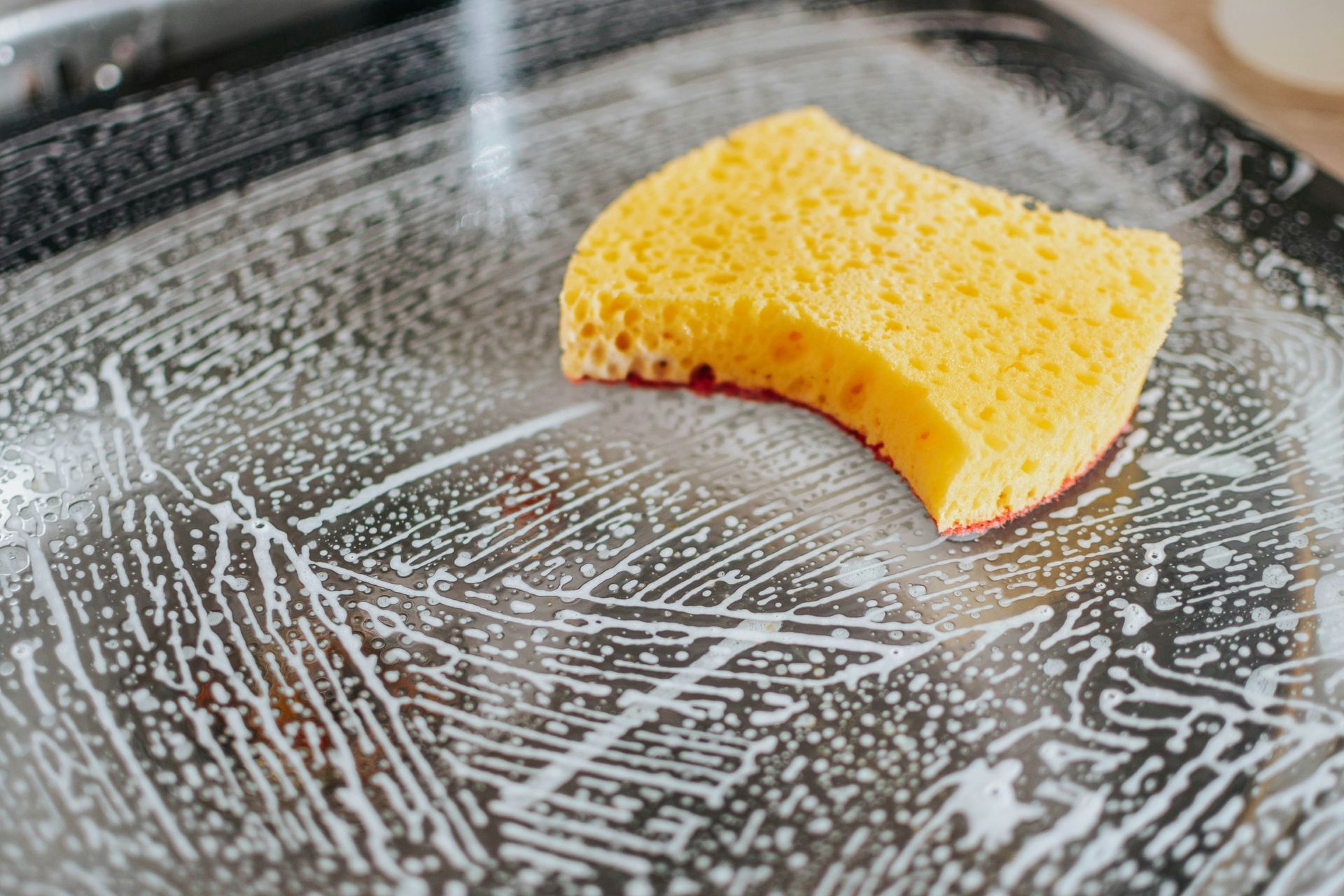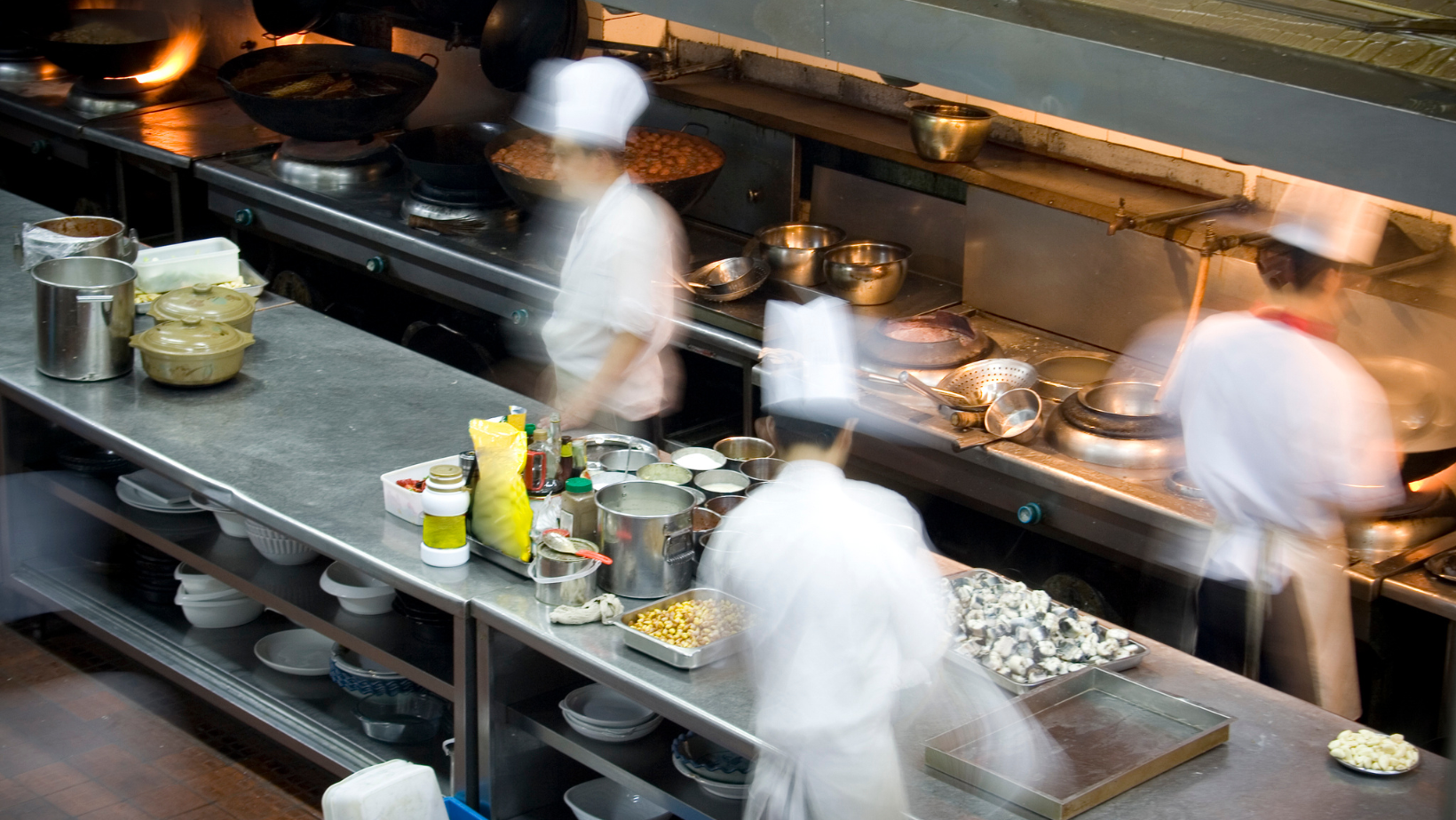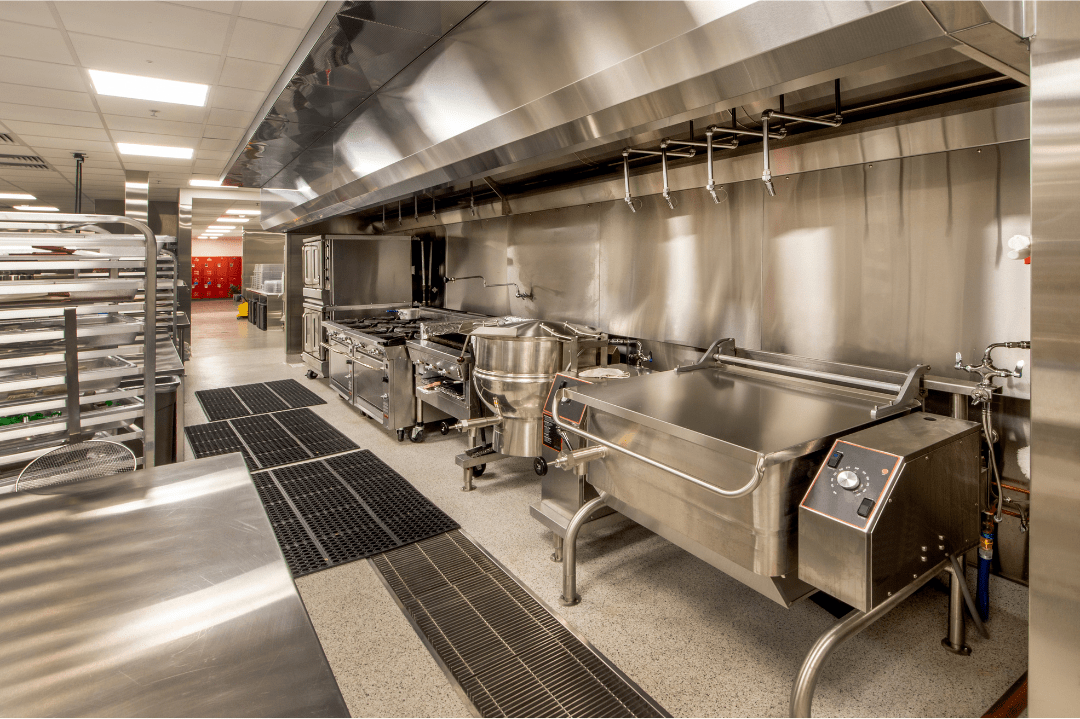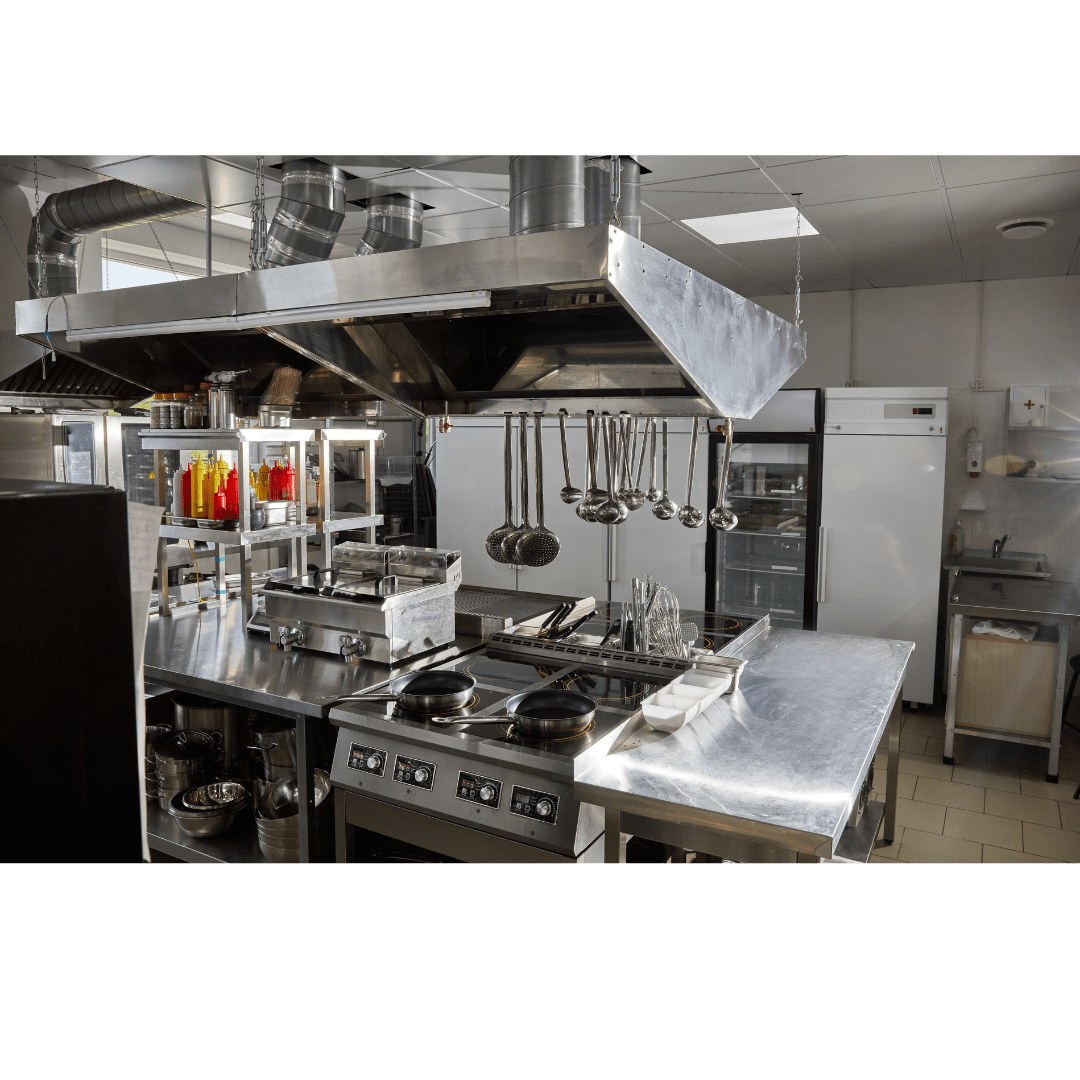How to Improve the Energy Efficiency of Your Commercial Kitchen
February 16, 2021
In a commercial kitchen, efficiency is an important element. If you’re running a commercial kitchen, you likely spend a fair amount of time brainstorming ways that your employees can reduce waste and increase efficiency. You may cut extraneous tasks, streamline a prep station, or simplify a recipe in order to save both time and money. Another key measure you can take to improve efficiency is cutting down on energy use in the commercial kitchen. Let’s look at four simple ways you can drive down substantial energy costs in a commercial kitchen environment.
1. Appropriately Space Cold and Hot Equipment
The first step you can take toward energy efficiency begins before you even install your first unit. When looking at the layout or blueprints of your commercial kitchen space, take time to consider the placement of all major kitchen equipment. When warm equipment such as ovens, ranges, or grills are placed near cold equipment like refrigerators and freezers, each unit must work even harder to maintain the ideal temperature. Separating your commercial kitchen into “hot zones” and “cool zones” may seem insignificant, but the energy savings will be anything but. Additionally, and equally important for your cold-side equipment, make sure that coils are given room to “breathe,” allowing for significant heat transfer, improving operation and extending life.
2. Calibrate and Insulate Hot Water Lines
Before kitchen service begins, double-check the settings of your hot water heater to make sure you’re using it effectively. Generally speaking, the hot water temperature shouldn’t be set higher than 140 degrees Fahrenheit. Any warmer than this and your water heater is using valuable energy to keep water at high temperatures. Whenever possible, insulate any exposed hot water lines to help pipes retain heat as it travels from the tank to the appliance. It’s also crucial to replace leaking spray hoses to reduce hot water consumption.
3. Utilize Low-Flow Spray Valves when Possible
Washing dishes quickly is an essential component of any well-run commercial kitchen. To expedite that process, high-flow spray valves are often used to rinse plates, prep containers, utensils, and cookware before they enter a commercial dishwasher. However, the pressure used by these rinse valves can vary widely. Cut down on excessive water use by replacing high-pressure valves with low-flow spray valves. Newer valves are now equipped with clearly marked gallons per minute (GPM) levels so that you can see just how much water is being used to rinse dishes. By using a new valve design, you can retain sufficient water pressure while significantly dropping your water use.
4. Clean and Maintain Commercial Kitchen Units Regularly
This simple step can save hundreds of dollars in energy costs and repair costs, so its importance can’t be overstated. Trapped grease and dust can drastically reduce energy efficiency and leave you vulnerable to machine failure, high utility bills, or even the possibility of dangerous fires. Scheduled maintenance with a trusted local kitchen equipment repair service
can prevent these issues before they occur. Protect your investment and save money on energy costs through routine planned maintenance.
Rely On ATECH for Your Equipment Service Needs
We understand how important your commercial kitchen equipment is to your bottom-line profitability. That’s one of the many reasons we’re trusted by numerous Tennessee business owners and operators to provide quick, expert service. To see how we can help keep your equipment up and running, call us for a service appointment or reach out for a planned maintenance quote.

As the season changes and springtime blooms, it's the perfect opportunity to refresh and rejuvenate your restaurant space. Spring cleaning isn't just about tidying up; it's about ensuring a safe, welcoming environment for your patrons and staff. In this blog post, we'll explore some essential tips and best practices for restaurant cleanliness in the springtime. Embrace Deep Cleaning : Spring cleaning is the ideal time to tackle those deep cleaning tasks that may have been neglected during the busier seasons. From scrubbing floors and walls to deep cleaning kitchen equipment, thorough sanitation ensures a hygienic environment for food preparation and service. Focus on High-Traffic Areas : Pay special attention to high-traffic areas such as dining areas, restrooms, and entryways. These areas are prone to accumulating dirt, dust, and germs, making regular cleaning essential for maintaining a pristine appearance and preventing the spread of illness. Refresh Outdoor Spaces : If your restaurant has outdoor seating areas, spring is the perfect time to freshen them up. Clean outdoor furniture, sweep away debris, and power wash outdoor surfaces to create an inviting atmosphere for al fresco dining. Check and Replace Equipment Filters : Don't forget to inspect and replace filters in HVAC systems, refrigeration units, and ventilation hoods. Clean filters help maintain air quality and prevent the buildup of contaminants, ensuring a healthy indoor environment for both customers and staff. Engage Staff in Cleaning Initiatives : Encourage staff members to take pride in the cleanliness of the restaurant by involving them in spring cleaning initiatives. Assign specific tasks and provide training on proper cleaning procedures to ensure consistency and effectiveness. Implement Regular Maintenance Schedule : Establish a regular maintenance schedule to keep up with cleaning tasks throughout the year. By incorporating daily, weekly, and monthly cleaning routines, you can maintain a high standard of cleanliness and prevent the accumulation of dirt and grime. Invest in Quality Cleaning Products : Choose cleaning products that are effective yet environmentally friendly. Look for products that are certified as safe for use in foodservice establishments and follow manufacturer recommendations for proper application and usage. Monitor and Adjust Cleaning Protocols : Continuously monitor cleaning protocols and adjust as needed based on feedback, customer traffic, and changing regulations. Regular evaluation ensures that your cleaning practices remain effective and in compliance with industry standards. Spring cleaning is an essential aspect of restaurant maintenance that goes beyond just aesthetics. By implementing thorough cleaning routines, engaging staff members, and investing in quality cleaning products, you can create a safe, hygienic environment that enhances the dining experience for your customers and promotes a healthy work environment for your staff. As you embark on your spring cleaning journey, remember that ATECH is here to support you with a wide range of cleaning and maintenance solutions tailored to meet the unique needs of your restaurant. Happy spring cleaning!

Winter is here, and at ATECH, we understand the unique challenges businesses face in keeping their commercial equipment running smoothly during the colder months. In this comprehensive guide, we'll delve into the strategies, tips, and success stories that can help your business navigate winter effortlessly. From equipment maintenance to emergency services, consider this your go-to resource for mastering winter with ATECH. Winter Equipment Maintenance Tips Checklist for Winter-Ready Equipment: Inspect Seals and Gaskets : Ensure a tight seal to prevent cold air leakage. Check Insulation : Evaluate the insulation of walk-in coolers and freezers. Clean and Sanitize : Thoroughly clean and sanitize all equipment surfaces. Temperature Adjustment : Set optimal winter temperatures for each piece of equipment. ATech Maintenance Tips for Different Equipment: Fryers and Grills : Clean and inspect burners for efficient operation. Ice Machines : Check water lines for insulation and replace filters regularly. Heating Systems : Schedule preventive maintenance to optimize efficiency. Electronic Equipment : Keep spaces well-heated and clean to prevent malfunctions. Businesses often grapple with specific equipment failures that can disrupt operations. ATECH understands the challenges posed by heating system malfunctions, electronic equipment performance, and other issues during the colder months. To tackle these common winter-related failures, businesses should prioritize preventive measures. Regular heating system maintenance checks and air filter replacements can prevent malfunctions. For electronic equipment, maintaining ambient room temperature and conducting routine cleaning are key strategies to ensure optimal performance throughout winter. ATECH's Winter Services: A Lifeline for Your Business Winter demands a proactive approach to equipment maintenance, and ATECH stands as the lifeline for businesses navigating the challenges of the season. Our comprehensive winter services go beyond mere repair and include prompt equipment repairs, planned maintenance, and emergency services. With a commitment to same-day service for urgent winter emergencies, ATECH ensures that businesses can rely on swift resolution during critical times. What sets us apart is our team of factory-trained and CFESA-certified technicians, offering not just reliability but a dedicated partnership to keep your business running smoothly through the coldest months. Trust in ATECH, your lifeline in the winter business landscape. Winter doesn't have to be a season of uncertainty for your business. With ATECH by your side, you have a reliable partner dedicated to providing top-notch equipment repairs and maintenance services. Master winter with confidence, knowing that our comprehensive guide and expert services are here to support your business every step of the way. For personalized winter readiness assessments and expert guidance, contact ATECH today. Let's navigate winter together, and keep your business thriving.









Share On: